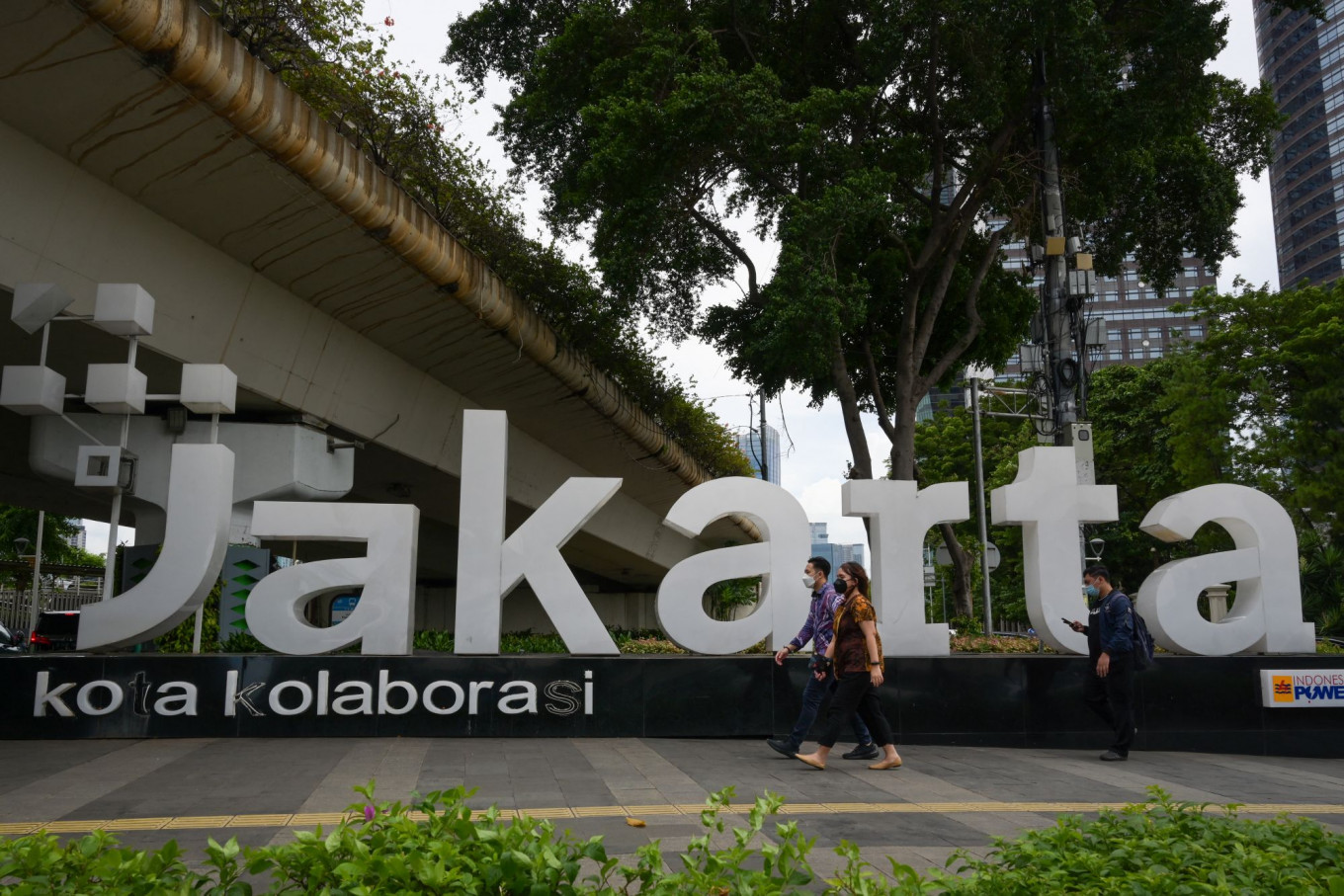Dreams can wait: Newcomers to Jakarta put survival first
Many young adults who relocate to the capital are forced into living frugally as high costs eat away at any extra income they might otherwise set aside for their future.
Change Size

R
ofi Jaelaani, a 25-year-old from Bangka Belitung, relocated to Jakarta four months ago to chase his dream of becoming a writer, but this has proven more challenging than he expected. Struggling as a freelancer just to cover food and rent, he has had to move house every month.
"Before, I lived in a boarding house for a month that cost Rp 1.5 million [US$99], but given the circumstances, it was uncertain that I could generate a monthly income equal to the regional minimum wage [UMR], so I had to find a place to live within my budget of around Rp 500,000 in the Pejaten area," he said, referring to an area in South Jakarta.
This year’s minimum wage for Jakarta is around Rp 4.9 million.
Finding a job in Jakarta was not as simple as he had though, said Rofi, pointing to intense competition among workers to establish connections.
"I also work in a field that is not my true passion, as I believe it is pointless to be too idealistic at this time and survival is paramount," Rofi told The Jakarta Post, without elaborating on his current projects as a freelancer.
"I'm just fortunate that I don't have any dependents relying on me for rent or anything else, so I believe that's enough, even if it's barely enough," he added.
As the business and employment hub in the highly centralized country, Jakarta promises a higher standard of living than other regions. That promise, elusive though it may be, still draws many people from far-flung regions across the archipelago in search of a better life.
Jakarta’s working population was an estimated 5.25 million in 2022, according to Statistics Indonesia (BPS), and represented an annual increase of 1.45 percent.
Sandwich generation
But the cost of living in the city is equally high, and building savings by laying aside some of their income each month is a steep order for many workers.
Wasti Samaria Simangunsong, originally from Pekanbaru in Riau, moved to Yogyakarta in 2017 to get a graduate degree, and then headed to Jakarta in 2021 to pursue a career in journalism.
She says she spends most of her income on transportation and housing, up to one-third for transportation and at least a quarter for housing.
“I read somewhere that, instead of cutting back on personal spending, you should look for additional income, but with my profession taking up most of my day, I can’t think of any side hustle that might improve my economic situation,” the 25-year-old told the Post on Aug. 28.
Nabila Chitra from Central Java, another newcomer to Jakarta, has more than herself to think about. Since her father plans to retire, the 27-year-old is helping with her brother’s higher education tuition.
Speaking to the Post on Monday, she explained that she also had to keep up with installments for a plot of land in Central Java. She was trying to set aside 20 to 30 percent of her income for her savings, which left her with a shoestring budget to cover her living costs.
The Financial Services Authority (OJK) has issued what it calls a balanced guideline for individuals to create a "life budget" in proportions of income: 10 percent for charitable deeds, 20 percent for savings and investments, 30 percent for installment payments and 40 percent for daily necessities like food, transportation and rent.
But that “balanced guideline” might leave many newcomers to Jakarta feeling that the OJK is living on a different planet.
Rofi recalled having to delve into his modest savings to make ends meet in July, when his unstable income barely exceeded Rp 1 million.
"Usually, I'm only able to save something if the income I receive [from freelancing] is near the level of the UMR. Otherwise, I need it all for basic needs, such as food and housing.
“There are occasions when I choose to sleep in to avoid feeling too hungry in the morning,” he said.
Connected lifestyles
Similarly, Wasti and Nabila say their food expenses make it hard for them to put any money aside.
“Whether you want to stick to healthy [foods] or not, the price is still high. Hence, even if you really try to cut your food expenses, it seems almost impossible,” Nabila said.
According to a September 2021 survey of 5,204 people from the Katadata Insight Center (KIC), people born around the turn of the century, known as Generation Z, spend the largest share of their income on communication, such as internet access and mobile phone credit.
This category consumes 26.7 percent of their income, followed by food at 22.8 percent, and then other regular costs including rent and transportation at 22.2 percent. Just 7 percent of their income goes to savings and emergency funds.
This is vastly different from the spending habits of the older Generation Y, also known as millennials, who allocate 37.4 percent for regular bills, 34.6 percent for food and just 10.1 percent for communication.
A growing number of young Indonesians are also increasingly concerned about consumer loans impacting their future: Companies have started scrutinizing the credit scores of prospective employees, while banks are denying loans to would-be home buyers over their online debt histories.
OJK data show that in April, some 2.3 million Jakartans owed a combined debt of Rp 10.3 trillion to online lenders.
University of Indonesia economist Ninasapti Triaswati noted that the price of certain basic goods like cooking oil had increased significantly in recent years, making it much harder for people to manage their expenses, especially for people who like to eat out.
"Not everyone enjoys cooking, so the issue is that they prefer snacks," she told the Post on Aug. 30, while highlighting that the needs and lifestyles of individuals were also factors to consider.
She added that informal workers with fluctuating incomes were in a particularly difficult situation, but also pointed out that people who were still single could save a lot on rent by sharing an abode with other.
Given the difficulties, many newcomers prefer not to mull over their future too much.
“I don’t think that I currently have any other ambitions. Getting married is expensive, and you need to think about your children’s future education. Even when you buy a house, it’s only about getting a deed in return for monthly installments, right?” Wasti said.
She added that her parents did not put much pressure on her, so “Right now, I’m just thinking one step at a time.”









